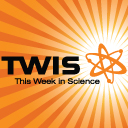Podcast: Play in new window | Download (Duration: 2:03:54 — 85.6MB)
What is in the This Week in Science Podcast?
Water Worlds, Banana Teeth, Teeny Tiny Cleaners, Damaged Dish, Look-Alike Galaxy, Dolphin Age, Interview w/ Daniel Whiteson on Physics & Comics, COVID UPdate, Homeless Law, Shrinking Dwarfs, Placebo Brains, Tuatara Tales, Shrinking Fish, And Much More…
Support us on Patreon!
Check out the full episode on our YouTube channel. You can do that here.
Disclaimer, Disclaimer, Disclaimer!!!
People worry… what are they worrying about to day
People worry… what are they worrying about today
People worr…
What’s that?
Covid-19 cases are experiencing exponential growth and politicians are canceling political rallies while encouraging children to attend in person schools?
The stimulus safety net has been stalled while millions are facing eviction?
And global warming is still a serious threat despite nobody talking about it?
Arecibo?
Yeah, that’s the world’s second largest telescope, located in Puerto Rico and currently tracking that dangerous near earth asteroid five times the size of a football field, or 80 tennis courts if you prefer…
…what do you mean Arecibo got ripped in half by a busted tension cable?
Seems like there’s a good reason
To worry, worry worry…
But one thing about which you need not worry or fret…
Is this week in science,
Coming up next…
Let’s start with some quick science news stories…
Water Worlds
Where there is water there might be life. And, a series of papers in Nature this week support the idea that a salty ocean exists beneath the icy surface of Ceres. Data from the Dawn mission, which visited the dwarf planet in the asteroid belt, showed variations in the Texas-diameter planetisimal’s gravitational field indicative of pockets of saltwater. Additionally, high-resolution images tell a story of ancient impacts cracking the ice shell, allowing water to seep onto the surface where it is visible today. Dawn first imaged these white spots on Ceres surface in 2015. The finding implies that the conditions for life could be closer to Earth than previously thought.
Ancient alligators of North America
HAD GIANT TEETH!
Teeny tiny cleaners
Artificial polyps modeled after corals can take contaminates out of the water particle by particle. And soon, they could grab a single cell to help with medecine! And most people don’t even know corals are animals!!
Damaged Dish
In the middle of the night on August 10th, a steel support cable snapped at the Arecebo Radio Observatory. The tension release resulted in a 30-meter slice out of the telescope’s 307-meter dish and damage to a newer antenna addition, the Gregorian Dome. The telescope will be offline until repairs can be made.
Look-Alike Galaxy
12 billion years ago, a galaxy like the Milky Way existed. This is weird because we have never found anything quite as ordered that far back before.
Dolphin Age
Could we slow aging down if we knew what to look for? Scientists addressed this question by studying dolphins. After 25-years and 144 dolphins housed by the US Navy, we have four markers found in the blood that can be used to measure aging differences… in dolphins. Hemoglobin, lymphocytes, platelets, and alkaline phosphatase levels indicated faster or slower aging individuals. If these same markers apply to human aging, they could inform the development of treatments for things like age-related anemia.
IF YOU ARE INTERESTED IN A TWIS SHIRT OR MUG OR OTHER ITEM OF TWIS MERCHANDISE CLICK ON THE ZAZZLE LINK TO BROWSE OUR STORE.
Who did we interview this week?
Daniel Whiteson is Professor of Physics & Astronomy at UC Irvine where he investigates questions related to the fundamental nature of our universe using experimental high energy physics. Whiteson is part of the ATLAS collaboration at the LHC, created an app to turn cell phones into cosmic ray detectors, has published several comics and books attempting to explain the universe… you might know him as Daniel from the podcast called Daniel & Jorge Explain the Universe.
Support us on Patreon!
Now for the weekly COVID-19 Update!
Clean Your Mouth!
Just like sanitizing surfaces, perhaps sanitizing your mouth works to reduce SARS-CoV2 transmission.
COVID Air
A hospital study found viable virus in the air of hospital rooms up to about 12 feet from admitted patients. Samples from the patients and air matched genetically, indicating that infectious aerosols can get into the air even without intubation procedures.
What could be greater than golf in a gaiter
Turns out, pretty much anything…
Russian Vaccine
The Russian vaccine might not be all it’s cracked up to be…
Positively Helpful
A positive spot near the spike protein might be a target for treatment.
Cat Drugs
Maybe drugs that are being developed to treat coronaviruses in cats could help us with SARS-CoV2.
LET US KNOW WHAT QUESTIONS OR CONCERNS YOU HAVE ABOUT COVID-19, OR INFORM US ON ANY REGIONAL UPDATES, BY EMAILING KIRSTEN@THISWEEKINSCIENCE.COM.
WANT TO HELP TWIS? LEAVE A POSITIVE REVIEW FOR TWIS ON YOUR FAVORITE PODCAST PLATFORM TODAY!
Tell us a story Justin!
Camping Law
A law aimed at getting tough on homeless people, voted for by people now about to be homeless.
Dr. Kiki’s got some science for you!
Shrinking Dwarfs
As they gain mass, white dwarfs shrink!
Placebo Brains
Michigan State University researchers found that even when people know they are taking a placebo the treatment is linked to a reduction in brain activity indicative of emotional distress.
HELP TWIS GROW! GET A FRIEND TO SUBSCRIBE TODAY!
It’s time for Blair’s Animal Corner!
Where does the tuatara belong??
The genes can tell!
CO2 is shrinking fish
What does global ocean acidification mean for fish? A bunch of small fry, that’s what.
This Week in Science Questions!
From Eric Combs:
“What has science done for me lately?
Well, I went on a trip to Munising, Upper Peninsula Michigan. Thanks to the hard research work of geologists, I was able to learn about geological strata back in college. Thanks to chemists and other scientists, we were able to learn about the elements, especially those we see in geology: iron, manganese, calcium, copper. What am I driving at? Well, for me, science can enrich and enhance the beauty of nature. Science does more than propel us forward technologically. It can also help us find new ways to activate our PNS to reduce stress and bring enjoyment to our existence. Everything from tiny arthropods to giant celestial bodies beyond our atmosphere. Yoga and body mechanics. Progressive relaxation and mindfulness. Science helps me appreciate the beauty everywhere around me, even in these tumultuous times of civil unrest and COVID-19. Knowledge is never a prerequisite for appreciating beauty, but it can help enrich the wonderment of everything around us. Science needs us to continue to explore the world each day with awakened curiosity.
Science question: If science wasn’t cool, then why is it possible to spell NErDy (nerdy) with the periodic table of elements? Nitrogen, Erbium, Dysprosium. Maybe the listeners would get a good chuckle?”
Listen to the podcast to hear our discussion!
Do you have questions that you want us to answer? Send us your questions! We will do our best to have answers!
Leave us a message on our Facebook page, OR email Dr. Kiki!


